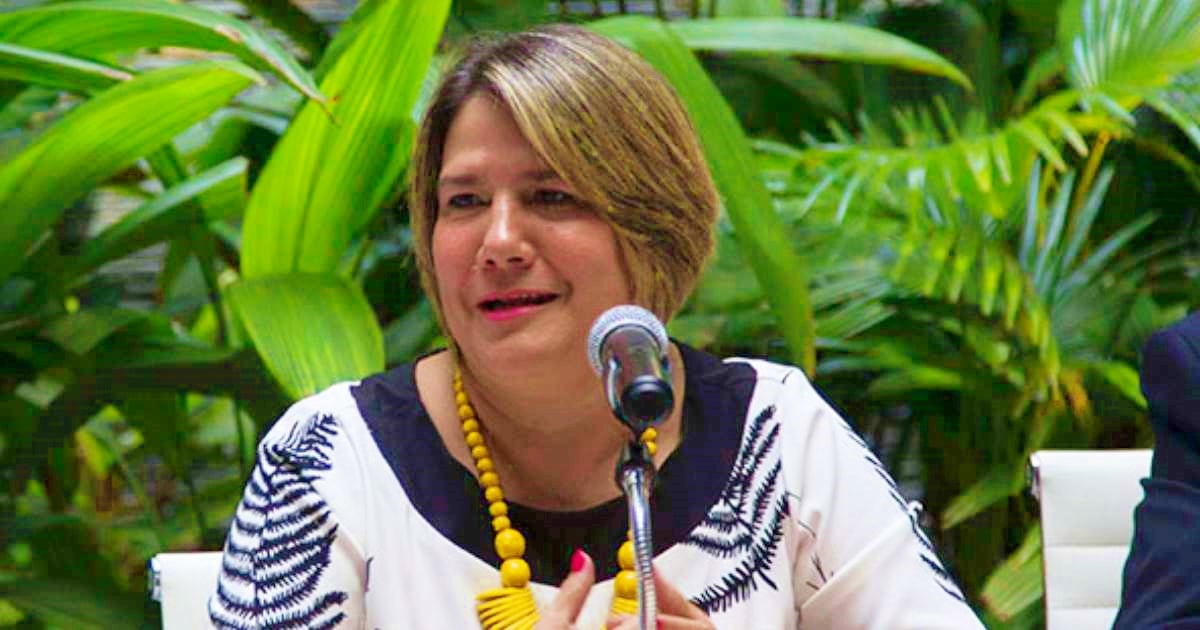The Academic Freedom Observatory (OLA) has raised concerns over Lis Cuesta Peraza's involvement in high-level scientific forums in Cuba. They argue that her participation is not based on proven professional expertise, but rather on influence-peddling and personality cults within Cuban academia. Cuesta, spouse of Cuban leader Miguel Díaz-Canel, faced backlash following her engagement in the I Symposium on Sports, Environment, and Society held from September 18 to 21 in Varadero.
This event, sponsored by the National Institute of Sports, Physical Education, and Recreation (INDER), aimed to promote inclusivity in physical activities and sports, while fostering human development in a healthy environment. However, attention shifted to Cuesta Peraza's presentation titled "Social Inclusion: A Principle of Exporting Academic Services from Cuba." Her lecture tackled globalization issues and challenges faced by Cuban sports, based on her doctoral thesis, which has sparked skepticism.
Scrutiny Over Cuesta's Academic Path
Cuesta Peraza's doctoral thesis, defended in 2023, has raised questions regarding the rigor and transparency of the process that awarded her the scientific degree. Her thesis, co-authored with Silvia Navarro Quintero, a specialist from the Central Institute of Pedagogical Sciences, is criticized by several academics for lacking sufficient scientific backing, as it includes only a few articles, mostly co-signed.
Furthermore, there is no evidence that Cuesta Peraza meets the English language proficiency requirement, an international standard for earning a doctorate in Cuba. Exiled academic José Raúl Gallego claimed this case reflects the erosion of academic standards in the country. According to Gallego, the process of obtaining scientific degrees has become a matter of fulfilling accreditation quotas rather than recognizing merit and rigorous research.
The Political-Academic Nexus in Cuba
The involvement of political figures in Cuban academia is a frequent practice that undermines the legitimacy of awarded scientific degrees. Díaz-Canel himself benefited from a similar process during his tenure as Minister of Higher Education, despite lacking a notable academic background.
Cuesta Peraza's thesis defense, conducted shortly after her husband's, strengthens the perception that these titles are granted to politically legitimize high-ranking officials rather than acknowledge their academic achievements. Her presence at significant academic forums and international events poses a danger, Gallego suggests, as it projects an image of "legitimacy" not aligned with her actual competencies.
While some regime officials defend her title as Doctor in Pedagogical Sciences, the academic community has openly questioned the validity of her credentials.
Mass Production of Academic Degrees: A Governmental Tactic
The granting of scientific degrees in Cuba has been criticized as part of a governmental strategy to boost income through the sale of academic services. In her master's thesis, Clara Lucía Vilasánchez identified several threats to the current model, including brain drain and competition from more prestigious international institutions.
The government has prioritized the commercialization of these services, leading to a decline in the quality and prestige of higher education in the country.
Controversial Honors and Government-Aligned Narratives
In June, Cuesta Peraza was awarded the title "Woman of Science" by the World Council of Academic and University Researchers (COMAU) at an event where she highlighted the fight against machismo in Cuba. However, the National Program for Women's Advancement, led by the Cuban Women's Federation, has been criticized for its inefficiency in combating gender violence and for silencing severe cases.
OLA asserts that Cuesta Peraza's involvement in Cuban academia is part of a governmental strategy to create a scientific façade that bolsters the regime's image, despite its numerous communication blunders and lack of genuine interest in research. This represents a devaluation of the intellectual dignity of the academic guild and poses a threat to the future of higher education in Cuba, the Observatory concluded in its report.
